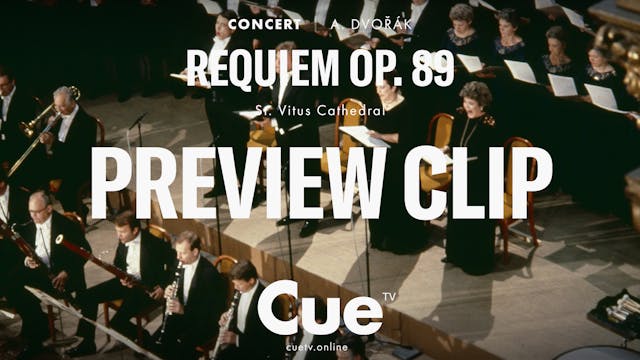REQUIEM OP. 89 (1988)
REQUIEM OP. 89 (1988)
•
Classics, Music
In 1891, when he arrived in England, he was met with a wave of approbation. The Requiem was planned to be the final highlight of the Birmingham Festival, and the organisers did not regret their assessment that Dvorák’s work would have a major impact on the audience. During the performance, Dvořák was himself so carried away by the music of the second “Pie Jesu”, that he had difficulty in piloting the massive choir safely through the a capella passage and had to be rescued by the observant organist! Dvořák had a close affinity with church music from his earliest days. His first music lessons were given to him by the town organist in Zlomitz and later by the cantor in Böhmisch-Kamnitz. At the age of 16 he transferred to the “Prague Organ School”, where he received a thorough grounding in church music. His first job as organist at St. Adalbert’s Church in Prague provided the young composer and his wife with much-needed financial security. During this period, most of his output consisted of church music, and as a practising Catholic he was keen to revive the moribund Bohemian tradition in this field. However, as it turned out, his major religious works in addition to the Requiem - the 149th Psalm, Te Deum and Stabat Mater - were not written for church performance but rather for the concert hall. With his Requiem, there is no doubt that Dvořák created the sort of major choral work that his English friends had been hoping for.
Arthaus Musik presents a historical recording and an outstanding performance of this choral masterpiece conducted by Václav Neumann - for the first time on DVD.
Up Next in REQUIEM OP. 89 (1988)
-
REQUIEM OP. 89 - Preview clip
Watch full performance here: REQUIEM OP. 89 (1988)

